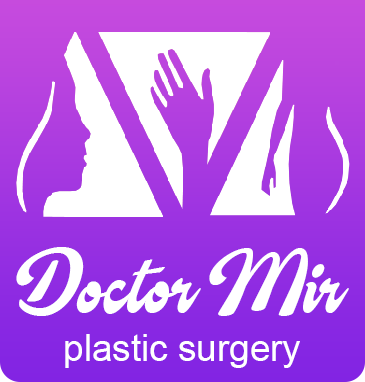The chin is one of the most important and effective parts of the face.
Balance and coordination of facial parts are very effective in the beauty and freshness of a person’s face.
Chin prosthesis implant surgery is a method that enables the plastic surgeon to balance the parts of the face.
There is no age limit for this surgery and everyone can do it as needed.
This surgery alone does not require anesthesia and can be performed under local anesthesia.
The reasons for doing this surgery are usually:
Unbalanced and inconsistent shape and size of facial parts.
Clear cracking of facial lines and demarcation of facial parts.
Contouring of the face.
Better and more beautiful chin appearance in front and side views.
Chin implants are made of flexible, safe materials that are compatible with permanent tissue and have a natural and anatomical shape of the face.
Chin prostheses are made in various sizes and shapes so that the plastic surgeon can choose the appropriate chin prosthesis according to the initial shape of the chin and the client’s wishes.
Typically, the surgeon inserts and fixes the chin prosthesis in the desired area and sutures delicately, which is not very recognizable by an incision under the chin (under the chin area) or inside the mouth (the distance between the gums and the lower lip).
Note: The chin prosthesis is permanent, and does not decompose or absorbed.
This surgery alone does not require anesthesia and can be done under local anesthesia
Note: When completing your case and also during the face-to-face consultation session, discuss complete information about your medical condition and your expectations from the surgery with the surgeon.
Necessary attention for surgery
Blood-thinning medications (anticoagulants) such as aspirin, Plavix, and warfarin should be discontinued in consultation with your physician before surgery.
Stop taking vitamin E and omega 3 five days before surgery.
Do the necessary tests and consultations fully and on time and bring the results on the surgery day.
To improve the surgery outcome, stop smoking at least 48 hours before the operation until the recovery period.
Paying attention to oral hygiene after surgery is very important and regular use of toothbrushes and mouthwashes is recommended.
For the first few days, the diet is liquids, mixed, and less chewy food.
Swelling, inflammation, bruising, and tingling sensation is normal in the surgical area, and gradually resolves.








بدون دیدگاه